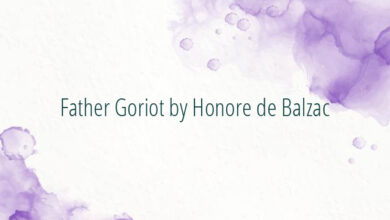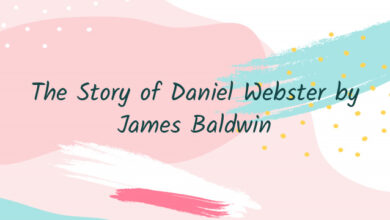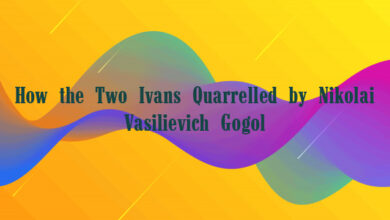
The Human Chord by Algernon Blackwood
Chapter 13
I
But Spinrobin was hardly prepared for the suddenness of the denouement. He had looked for a longer period of preparation, with the paraphernalia of a considerable, even an august ceremony. Instead, the announcement came with an abrupt simplicity that caught him with a horrid shock of surprise. He was taken wholly unawares.
“The only thing I fear,” Mr. Skale had confided to them, “is that the vibrations of our chord may have already risen to the rooms and cause a premature escape. But, even so, we shall have ample warning. For the deaf, being protected from the coarser sounds of earth, are swift to hear the lightest whispers from Heaven. Mrs. Mawle will know. Mrs. Mawle will instantly warn us….”
And this, apparently, was what happened, though not precisely as Mr. Skale had intended, nor with the margin for preparation he had hoped. It was all so swift and brief and shattering, that to hear Spinrobin tell it makes one think of a mass of fireworks that some stray spark has sent with blazing explosion into the air, to the complete loss of the calculated effect had they gone off seriatim as intended.
And in the awful stress of excitement there can be no question that Spinny acted out of that subconscious region of the mind which considers and weighs deeds before passing them on to the surface mind, translating them into physical expression and thinking itself responsible for the whole operation. The course he adopted was thus instinctive, and, since he had no time to judge, blameless.
Neither he nor Miriam had any idea really that their minds, subconsciously, were already made up. Yet only that morning he had been talking with her, skirting round the subject as they always did, ashamed of his doubts about success, and trying to persuade her, and, therefore, himself, that the path of duty lay in following their leader blindly to the very end.
He had seen her on the stairs ahead of him, and had overtaken her quickly. He drew her down beside him, and they sat like two children perched on the soft-carpeted steps.
“It’s coming, you know,” he said abruptly, “the moment’s getting very close.”
He felt the light shudder that passed through her into himself. She turned her face to him and he saw the flush of excitement painted in the center of the usually pale cheeks. He thought of some rare flower, delicately exotic, that had sprung suddenly into blossom from the heart of the bleak December day, out of the very boards whereon they sat.
“We shall then be as gods,” he added, “filled with the huge power of those terrific Letters. And that is only the beginning.” In himself he was striving to coax a fading enthusiasm, and to pour it into her. Her little hand stole into his. “We shall be a sort of angel together, I suppose. Just think of it…!” His voice was not as thrilling as it ought to have been, for very human notes vibrated down below in the part he tried to keep back. He saw the flush fade from her cheeks, and the pallor spread. “You and I, Miriam–something tremendous together, greater than any other man and woman in the whole world. Think of it, dear baby; just think of it…!”
A tiny frown gathered upon her forehead, darkening the grey eyes with shadows.
“But–lose our Winky!” she said, nestling against his coat, her voice singularly soft, her fingers scratching gently the palm of his hand where they lay.
“Hush, hush!” he answered, kissing her into silence. “We must have more faith. I think everything will be all right. And there is no reason why we should lose our Winky,” he added, very tenderly, smothering the doubt as best he could, “although we may find his name changed. Like the rest of us, he will get a ‘new name’ I suppose.”
“Then he won’t be our Winky any longer,” she objected, with a touch of obstinacy that was very seductive. “We shall all be different. Perhaps we shall be too wonderful to need each other any more…. Oh, Spinny, you precious thing my life needs, think of that! We may be too wonderful even to care!”
Spinrobin turned and faced her. He tried to speak with authority and conviction, but he was a bad actor always. He met her soft grey eyes, already moist and shining with a tenderness of love beyond belief, and gazed into them with what degree of sternness he could.
“Miriam,” he said solemnly, “is it possible that you do not want us to be as gods?”
Her answer came this time without hesitation. His pretended severity only made her happy, for nothing could intimidate by a hair’s breadth this exquisite first love of her awakening soul.
“Some day, perhaps, oh, my sweet Master,” she whispered with trembling lips, “but not now. I want to be on earth first with you–and with our Winky.”
To hear that precious little voice call him “sweet Master” was almost more than he could bear. He made an effort, however, to insist upon this fancied idea of “duty” to Skale; though everything, of course, betrayed him–eyes, voice, gestures.
“But we owe it to Mr. Skale to become as gods,” he faltered, trying to make the volume of his voice atone for its lack of conviction.
And it was then she uttered the simple phrase that utterly confounded him, and showed him the new heaven and new earth wherein he and she and Winky already lived.
“I am as God now,” she said simply, the whole passion of a clean, strong little soul behind the words. “You have made me so! You love me!”II
The same moment, before they could speak or act, Skale was upon them from behind with a roar.
“Practicing your splendid notes together!” he cried, thundering down the steps past them, three at a time, clothed for the first time in the flowing scarlet robe he usually wore only in the particular room where his own “note” lived. “That’s capital! Sing it together in your hearts and in your souls and in your minds; and the more the better!”
He swept by them like a storm, vanishing through the hall below like some living flame of fire. They both understood that he wore that robe for protection, and that throughout the house the heralds of the approaching powers of the imprisoned Letters were therefore already astir. His steps echoed below them in the depths of the building as he descended to the cellar, intent upon some detail of the appalling consummation that drew every minute nearer.
They turned and faced one another, breathless a little. Tenderness and terror shone plainly in their eyes, but Spinrobin, ever an ineffectual little man, and with nothing of the “Master” really in his composition anywhere, found no word to speak. That sudden irruption of the terrific clergyman into their intimate world had come with an effect of dramatic and incalculable authority. Like a blast of air that drives the furnace to new heat and turns the metal white, his mind now suddenly saw clear and sure. The effect of the incident was too explosive, however, for him to find expression. Action he found in a measure, but no words. He took Miriam passionately into his arms as they stood there in the gathering dusk upon the staircase of that haunted and terrible building, and Miriam it was who found the words upon which they separated and went quietly away to the solitude each needed for the soul.
“We’ll leave the gods alone,” she said with gentle decision, yet making it seem as though she appealed to his greater strength and wisdom to decide; “I want nothing but you–you and Winky. And all you really want is me.”
But in his room he heard the vibrations of the clergyman’s voice rising up through the floor and walls as he practiced in the cellar the sounds with which the ancient Hebrews concealed the Tetragrammaton: YOD–HE–VAU–HE: JEHOVAH–JAHVE–of which the approaching great experiment, however, concerned itself only with the opening vibrations of the first letter–YOD….
And, as he listened, he hesitated again … wondering after all whether Miriam was right.III
It was towards the end of their short silent dinner that very night–the silence due to the fact that everybody was intently listening–when Spinrobin caught the whisper of a singular faint sound that he took first to be the rising of wind. The wind sometimes came down that way with curious gulps from the terraces of the surrounding moors. Yet in this sound was none of that rush and sigh that the hills breed. It did not drop across the curves of the world; it rose from the center.
He looked up sharply, then at once realized that the sound was not outside at all, but inside–inside the very room where he sat facing Skale and Miriam. Then something in his soul recognized it. It was the first wave in an immense vibration.
Something stretched within him as foam stretches on the elastic side of a heaped Atlantic roller, retreated, then came on again with a second gigantic crest. The rhythm of the huge sound had caught him. The life in him expanded awfully, rose to far summits, dropped to utter depths. A sense of glowing exaltation swept through him as though wings of power lifted his heart with enormous ascendancy. The biggest passions of his soul stirred–the sweetest dreams, yearnings, aspirations he had ever known were blown to fever heat. Above all, his passion for Miriam waxed tumultuous and possessed him.
Mr. Skale dropped his fruit knife and uttered a cry, but a cry of so peculiar a character that Spinrobin thought for a moment he was about to burst into song. At the same instant he stood up, and his chair fell backwards with a crash upon the floor. Spinrobin stood up too. He asserts always that he was lifted up. He recognized no conscious effort of his own. It was at this point, moreover, that Miriam, pale as linen, yet uttering no sound and fully mistress of herself, left her side of the table and ran round swiftly to the protection of her lover.
She came close up. “Spinny,” she said, “it’s come!”
Thus all three were standing round that dinner table on the verge of some very vigorous action not yet disclosed, as people, vigilant and alert, stand up at a cry of fire, when the door from the passage opened noisily and in rushed Mrs. Mawle, surrounded by an atmosphere of light such as might come from a furnace door suddenly thrown wide in some dark foundry. Only the light was not steady; it was whirling.
She ran across the floor as though dancing–the dancing of a child–propelled, it seemed, by an irresistible drive of force behind; while with her through the opened door came a roaring volume of sound that was terrible as Niagara let loose, yet at the same time exquisitely sweet, as birds or children singing. Upon these two incongruous qualities Spinrobin always insists.
“The deaf shall hear–!” came sharply from the clergyman’s lips, the sentence uncompleted, for the housekeeper cut him short.
“They’re out!” she cried with a loud, half-frightened jubilance; “Mr. Skale’s prisoners are bursting their way about the house. And one of them,” she added with a scream of joy and terror mingled, “is in my throat…!”
If the odd phrase she made use of stuck vividly in Spinrobin’s memory, the appearance she presented impressed him even more. For her face was shining and alight, radiant as when Skale had called her true name weeks before. Flashes of flame-like beauty ran about the eyes and mouth; and she looked eighteen–eternally eighteen–with a youth that was permanent and unchanging. Moreover, not only was hearing restored to her, but her left arm, withered for years, was in the act of pointing to the ceiling, instinct with vigorous muscular life. Her whole presentment was splendid, intense–redeemed.
“The deaf hear!” repeated Skale in a shout, and was across the room with the impetus of a released projectile. “The Letters are out and alive! To your appointed places! The syllable has caught us! Quick, quick! If you love your soul and truth … fly!”
Deafening thunders rushed and crashed and blew about the room, interpenetrated everywhere at the same time by that searching strain of sweetness Spinrobin had first noticed. The sense of life, running free and abundant, was very remarkable. The same moment he found his hand clasped, and felt himself torn along by the side of the rushing clergyman into the hall. Behind them “danced” Mrs. Mawle, her cap awry, her apron flying, her elastic-side boots taking the light, dancing step of youth. With quick, gliding tread Miriam, still silent, was at his heels. He remembers her delicate, strange perfume reaching him faintly through all the incredible turmoil of that impetuous exit.
In the hall the roar increased terrifically about his ears. Skale, in his biggest booming voice, was uttering the names of Hebrew “angels”–invoking forces, that is, to his help; and behind him Mrs. Mawle was singing–singing fragments apparently of the “note” she had to utter, as well as fragments of her own “true name” thus magically recovered. Her restored arm gyrated furiously, her tripping youth spelt witchery. Yet the whole madness of the scene came to Spinrobin with a freezing wind of terror; for about it was a lawless, audacious blasphemy, that must surely win for itself a quite appalling punishment….
Yet nothing happened at once–nothing destructive, at least. Skale and the housekeeper, he saw, were hurriedly robing themselves in the red and yellow surplices that hung from nails in the hall, and the instinct to laugh at the sight was utterly overwhelmed when he remembered that these were the colors which were used for safety in their respective “rooms.” … It was a scene of wild confusion and bewilderment which the memory refuses to reproduce coherently. In his own throat already began a passionate rising of sound that he knew was the “note” he had to utter attempting to escape, summoned forth automatically by these terrible vibrating Letters in the air. A cataract of sound seemed to fill the building and made it shake to its very foundations.
But the hall, he saw, was not only alive with “music,” it was ablaze with light–a white and brilliant glory that at first dazzled him to the point of temporary blindness.
The same second Mr. Skale’s voice, storming its way somehow above the tumult, made itself heard:
“To the rooms upstairs, Spinrobin! To the corridor with Miriam! And when you hear my voice from the cellar–utter! We may yet be in time to unite the Letters…!”
He released the secretary’s hand, flinging it from him, and was off with a bounding, leaping motion like an escaped animal towards the stone passage that led to the cellar steps; and Spinrobin, turning about himself like a top in a perfect frenzy of bewilderment, heard his great voice as he disappeared round the corner:
“It has come upon me like a thief in the night! Before I am fully prepared it has called me! May the powers of the Name have mercy upon my soul…!” And he was gone. For the last time had Spinrobin set his eyes upon the towering earthly form of the Rev. Philip Skale.IV
Then, at first, it seems, the old enthusiasm caught him, and with him, therefore, caught Miriam, too. That savage and dominant curiosity to know clutched him, overpowering even the assaults of a terror that fairly battered him. Through all the chaos and welter of his dazed mind he sought feverishly for the “note” he had to utter, yet found it not, for he was too horribly confused. Fiddles, sand-patterns, colored robes, gongs, giant tuning-forks, wax-sheeted walls, aged-faces-turned-young and caverns-by-the-sea jostled one another in his memory with a jumble of disproportion quite inextricable.
Next, impelled by that driving sense of duty to Skale, he turned to the girl at his side: “Can you do it?” he cried.
Unable to make her voice heard above the clamor she nodded quickly in acquiescence. Spinrobin noticed that her little mouth was set rather firmly, though there was a radiance about her eyes and features that made her sweetly beautiful. He remembers that her loveliness and her pluck uplifted him above all former littlenesses of hesitation; and, seizing her outstretched hand, they flew up the main staircase and in less than a minute reached the opening of the long corridor where the rooms were.
Here, however, they stopped with a gasp, for a hurricane of moving air met them in the face like the draught from some immense furnace. Again the crest of a wave in the colossal sound-vibration had caught them. Staggering against the wall, they tried again and again to face the tempest of sound and light, but the space beyond them was lit with the same unearthly brilliance as the hall, and out of the whole long throat of that haunted corridor issued such a passion of music and such a torrent of gorgeous color, that it seemed impossible for any aggregation of physical particles–least of all poor human bodies–to remain coherent for a single instant before the concentrated onslaught.
Yet, game to the inmost core of his little personality, and raised far above his normal powers by the evidence of Miriam’s courage and fidelity, he struggled with all his might and searched through the chambers of his being for the note he was ordained to utter in the chord. The ignominy of failure, now that the great experiment was full upon him–failure in Miriam’s eyes, too–was simply impossible to contemplate. Yet, in spite of every effort, the memory of that all-important note escaped him utterly, for the forces of his soul floundered, helpless and disheveled, before the too mighty splendors that were upon him at such close quarters. The sounds he actually succeeded in emitting between dry and quivering lips were pitiful and feeble beyond words.
Down that living corridor, meanwhile, he saw the doors of the four rooms were gone, consumed like tissue paper; and through the narrow portals there shouldered forward, bathed in light ineffable, the separate outlines of the Letters so long imprisoned in inactivity. And with their appearance the sounds instantly ceased, having overpassed the limits of what is audible to human ears. A great stillness dropped about them with an abrupt crash of utter silence. For a “crash” of silence it was–all-shattering.
And then, from the categories of the incomprehensible and unmanifest, “something” loomed forth towards them where, limp and shaking, they leaned against the wall, and they witnessed the indescribable operation by which the four Letters, whirling and alive, ran together and melted into a single terrific semblance of a FORM … the sight of which entered the heart of Spinrobin and threatened to split it asunder with the joy of the most sublime terror and adoration a human soul has ever known.
And the whole gigantic glory of Skale’s purpose came upon him like a tempest. The magnificent effrontery by which the man sought to storm his way to heaven again laid its spell upon him. The reaction was of amazing swiftness. It almost seemed as though time ceased to operate, so instantaneously did his mood pass from terror to elation–wild, ecstatic elation that could dare anything and everything to share in the awful delight and wonder of Skale’s transcendent experiment.
And so, forgetting himself and his little disabilities of terror and shrinking, he sought once again for the note he was to utter in the chord. And this time he found it.V
Very faintly, yet distinctly audible in the deep stillness, it sounded far away down in the deeps of his being. And, with a splendid spiritual exultation tearing and swelling in his heart, he turned at once triumphantly to Miriam beside him.
“Utter your note too!” he cried. “Utter it with mine, for any moment now we shall hear the command from the cellar…. Be ready…!”
And the FORM, meanwhile, limned in the wonder of an undecipherable or at least untranslatable geometry, silently roaring, enthroned in the undiscoverable colors beyond the spectrum, swept towards them as he spoke.
At the same instant Miriam answered him, her exquisite little face set like a rock, her marble pallor painted with the glory of the approaching splendors. Just when the moment of success was upon them; when the flying Letters were abroad; when all the difficult weeks of preparation were face to face with the consummation; and when any moment Skale’s booming bass might rise from the bowels of the building as the signal to utter the great chord and unite the fragments of the first divine syllable; when Spinrobin had at last conquered his weakness and recovered his note–then, at this decisive and supreme moment, Miriam asserted herself and took the reins of command.
“No,” she said, looking with sudden authority straight into his eyes, “no! I will not utter the note. Nor shall you utter yours!” And she clapped her little hand tight upon his mouth.
In that instant of unutterable surprise the two great forces of his life and personality met together with an explosive violence wholly beyond his power to control. For on the one hand lay the fierce enticement of Skale’s heaven, with all that it portended, and on the other the deep though temporarily submerged human passion of his love for the girl. Miriam’s sudden action revealed the truth to him better than any argument. In a flash he realized that her choice was made, and that she was in entire and final revolt against the whole elaborate experiment and all that it involved. The risk of losing her Spinny, or finding him changed in some condition of redemption where he would no longer be the little human thing she so dearly loved, had helped her to this final, swift conclusion.
With her hand tight over his lips, and her face of white decision before him, he understood. She called him with those big grey eyes to the sweet and common uses of life, instead of to the heights of some audacious heaven where they might be as gods with Philip Skale. She clung to humanity. And Spinrobin, seeing her at last with spiritual eyes fully opened, knew finally that she was right.
“But oh,” he always cries, “in that moment I knew the most terrible choice I have ever had to make, for it was not a choice between life and death, but a choice between two lives, each of infinite promised wonder. And what do you think it was that decided me, and made me choose the wholesome, humble life with little Miriam in preference to the grandeur of Skale’s vast dream? What do you think?” And his face always turns pink and then flame-colored as he asks it, hesitating absurdly before giving the answer. “I’ll tell you, because you’d never guess in this world.” And then he lowers his voice and says, “It was the delicious little sweet perfume of her fingers as she held them over my lips….!”
That delicate, faint smell was the symbol of human happiness, and through all the whirlwind of sound and color about him, it somehow managed to convey its poignant, searching message of the girl’s utter love straight into his heart. Thus curiously out of proportion and insignificant, indeed, are sometimes the decisive details that in moments of overwhelming experience turn the course of life’s river this way or that….
With a single wild cry in his soul that found no audible expression, he gave up the unequal struggle. He turned, and with Miriam by his side, flew down the corridor from the advent of the Immensity that was upon them–from the approach of the escaping Letters.VI
How Spinrobin found his way out of that sound-stricken house remains an unsolved mystery. He never understood it himself; he remembers only that when they reached the ground floor the vibrations of Skale’s opening bass note had already begun. Its effect, too, was immediately noticeable. For the roar of the escaping Letters, which upstairs had reached so immense a volume as to be recognized only in terms of silence, now suddenly grew in a measure harnessed and restrained. Their vibration became reduced–down closer to the sixteen-foot wavelength which is the limit of human audition. They were being leashed in by the summoning master-tone. They grew once more audible.
On the rising swirl of sound the two humans were swept down passages and across halls, as two leaves are borne by a tempest, and after frantic efforts, in which Spinrobin bruised his body against doors and walls without number, he found himself at last in the open air, and at a considerable distance from the house of terror. Stars shone overhead. He saw the outline of hills. Breaths of cool wind fanned his burning skin and eyes.
But he dared not turn to look or listen. The music of that opening note, now rising through the building from the cellar, might catch him and win him back. The chord in which himself and Miriam were to have uttered their appointed tones, even half-told, was still mighty to overwhelm. Its effect upon the Letters themselves had been immediate.
The feeling that he had proved faithless to Skale, unworthy of the great experiment, never properly attuned to this fearful music of the gods–this was forgotten in the overmastering desire to escape from it all into the safety of common human things with Miriam. Setting his course ever up the hills, he ran on and on, till breath failed him utterly and he was obliged to stop for lack of strength. And it was only then he realized that the whole time the girl had been in his arms. He had been carrying her.
Placing her on the ground, he caught a glimpse of her eyes in the darkness, and saw that they were still charged with the one devouring passion that had made the sacrifice of Skale and of all her training since birth inevitable. Soft and glowing with her first knowledge of love, her grey eyes shone like stars newly risen.
“Come, come!” he whispered hoarsely; “we must get as far as possible–away from it all. Across the hills we shall find safety. Once the splendors overtake us we are lost….”
Seizing her by the hand, they pressed on again, the ocean of sound rising and thundering behind them and below.
Without knowing it, he had taken the path by which the clergyman had brought him from the station weeks ago on the day of his first arrival. With a confused memory, as of a dream, he recognized it. The ground was slippery with dead leaves whose odor penetrated sharply the air of night. Everywhere about him, as they paused from time to time in the little open spaces, the trees pressed up thickly; and ever from the valley they had just left the increasing tide of sound came pouring up after them like the roar of the sea escaping through doors upon the surface of the world.
And even now the marvelous, enticing wonder of it caught him more than once and made him hesitate. The sense of what he was giving up sickened him with a great sudden yearning of regret. The mightiness of that loved leader, lonely and unafraid, trafficking with the principalities and powers of sound, and reckoning without misgiving upon the cooperation of his other “notes”–this plucked fearfully at his heartstrings. But only in great tearing gusts, so to speak, which passed the instant he realized the little breathless, grey-eyed girl at his side, charged with her beautiful love for him and the wholesome ambition for human things.
“Oh! but the heaven we’re losing…!” he cried once aloud, unable to contain himself. “Oh, Miriam … and I have proved unworthy … small…!”
“Small enough to stay with me forever and ever … here on the earth,” she replied passionately, seizing his hand and drawing him further up the hill. Then she stopped suddenly and gathered a handful of dead leaves, moss, twigs and earth. The exquisite familiar perfume as she held it to his face pierced through him with a singular power of conviction.
“We should lose this,” she exclaimed; “there’s none of this … in heaven! The earth, the earth, the dear, beautiful earth, with you … and Winky … is what I want!”
And when he stopped her outburst with a kiss, fully understanding the profound truth she so quaintly expressed, he smelt the trees and mountains in her hair, and her fragrance was mingled there with the fragrance of that old earth on which they stood.VII
The rising flood of sound sent them charging ahead the same minute, for it seemed upon them with a rush; and it was only after much stumbling and floundering among trees and boulders that they emerged into the open space of the hills beyond the woods. Actually, perhaps, they had been running for twenty minutes, but to them it seemed that they had been running for days. They stood still and looked about them.
“You shall never regret, never, never,” Miriam whispered quickly. “I can make you happier than all this ever could,” and she waved her arm towards the house below. “And you know it, my little Master.”
But before he could reply, or do more than place an arm about her waist to support her, something came to pass that communicated its message to their souls with an incalculable certainty neither could explain. Perhaps it was that distance enabled them to distinguish between the sounds more clearly, or perhaps their beings were still so intimately connected with Skale that some psychic warning traveled up to them across the night; but at any rate there then came about this sharp and sudden change in the quality of the sound-tempest round them that proclaimed the arrival of an exceedingly dramatic moment. The nature of the rushing, flying vibrations underwent alteration. And, looking one another in the eyes, they realized what it meant.
“He’s beginning …” faltered Spinrobin in some skeleton of a voice. “Skale has begun to utter…!” He said it beneath his breath.
Down in the cellar of that awful house the giant clergyman, alone and undismayed, had begun to call the opening vibration of the living chord which was to gather in this torrent of escaping Letters and unite them in temporary safety in the crypts of the prepared vault. For the first time in eighteen hundred years the initial sound of the “Name that rusheth through the universe”–the first sound of its opening syllable, that is–was about to thunder its incalculable message over the earth.
Crouching close against each other they stood there on the edge of the woods, the night darkly smothering about them, the bare, open hills lying beyond in the still sky, waiting for the long-apprehended climax–the utterance of the first great syllable.
“It will make him … as God,” crashed the thought through Spinrobin’s brain as he experienced the pangs of the fiercest remorse he had ever known. “Even without our two notes the power will be sublime…!”
But, through Miriam’s swiftly-beating heart, as she pressed closer and closer: “I know your true name … and you are mine. What else in heaven or earth can ever matter…?”




